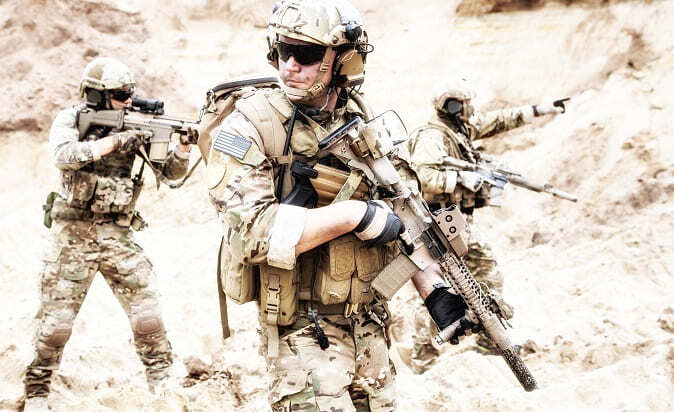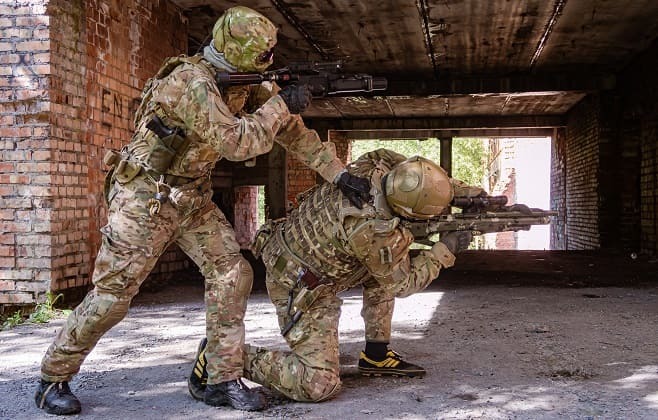
 Data Structure
Data Structure Networking
Networking RDBMS
RDBMS Operating System
Operating System Java
Java MS Excel
MS Excel iOS
iOS HTML
HTML CSS
CSS Android
Android Python
Python C Programming
C Programming C++
C++ C#
C# MongoDB
MongoDB MySQL
MySQL Javascript
Javascript PHP
PHPPhysics
Chemistry
Biology
Mathematics
English
Economics
Psychology
Social Studies
Fashion Studies
Legal Studies
- Selected Reading
- UPSC IAS Exams Notes
- Developer's Best Practices
- Questions and Answers
- Effective Resume Writing
- HR Interview Questions
- Computer Glossary
- Who is Who
What is the full form of CISF?
Introduction
Central Industrial Security Force (CISF) was established on June 15, 1983 in compliance with the CISF Act of 1968. The force in India is in charge of securing numerous public and private institutions.

The force was first created to supply security to organisations in the public segment, but because it developed, it moreover started to include institutions within the private segment. The CISF is as of now one of India's most major paramilitary associations and has more than 1.5 lakh individuals Members individuals.
Roles and Responsibilities of CISF
Here are Some of the roles and Responsibilites of CISF are −
Security of critical Infrastructure − CISF gives safety to important infrastructure together with airports, seaports, power plants, and other sensitive installations.
Protection of VIPs − CISF affords protection to VIPs, which includes heads of state, travelling foreign dignitaries, and other high-level officials.
Disaster response − CISF is prepared to respond to disasters and emergencies, together with natural disasters and terrorist attacks.
Fire protection − CISF has trained personnel to address fire safety and prevention at various installations.
Bomb Detection and Disposal − CISF has a specialized Bomb Detection and Disposal Squad (BDS) to address any explosive threat.
Security Consultancy − CISF presents protection consultancy to diverse organizations to assist them enhance their security measures.
Structure of CISF
Here are the some detailed structure of CISF −
Director-general (DG) − the very best rank in the CISF. The DG is responsible for the overall functioning and management of the force.
Additional Director-general (ADG) − the second-highest rank in the CISF. The ADG assists the DG in the management and functioning of the force.
Inspector-general (IG) −The third-maximum rank in the CISF. The IG is responsible for the administration of a area or quarter.
Deputy Inspector-general (DIG) − The fourth-highest rank in the CISF. The DIG is liable for the management of a quarter or group of units.
Commandant (Comdt) − The fifth-highest rank in the CISF. The Commandant is responsible for the administration of a unit or battalion.
Deputy Commandant (DC) − The 6th-highest rank in the CISF. The DC assists the Commandant in the administration of a unit or battalion.
Assistant Commandant (AC) − The seventh-highest rank in the CISF. The AC is accountable for the administration of a corporation or a platoon.
Sub-Inspector (SI) − The eighth-highest rank in the CISF. The SI is liable for the administration of a segment or a squad.
Assistant Sub-Inspector (ASI) − The ninth-highest rank in the CISF. The ASI is responsible for the management of a team or a group.
Head Constable (HC) − The 10th-highest rank in the CISF. The HC is liable for the supervision of a group or a group.
Constable (Ct) − the lowest rank in the CISF. The Ct is responsible for carrying out obligations assigned by the senior officers.
Achievements of CISF
Herea are the significant accomplishments of CISF are −
Proficient security − CISF is known for providing proficient assurance to different critical installations which incorporate airports, seaports, and nuclear power plants. The force includes a good track record in anticipating security breaches and reacting to crises.
Professionalism − CISF is known for its professionalism and commitment to obligation. The constrain features a thorough preparing program that ensures that its representatives are well-equipped to handle any circumstance.

Worldwide acknowledgment − CISF has gotten around the world popularity for its security measures. In 2013, the international association of Chiefs of Police (IACP) given the CISF with the prestigious 'Excellence in homeland security' award.
Disaster response − CISF has been included in various disaster reaction operations, which incorporate the 2001 Gujarat earthquake, the 2004 Indian Sea tsunami, and the 2013 Uttarakhand surges. The force has gotten praise for its quick response and productive managing with of these disasters.
Women Empowerment − CISF has played a huge role in women's empowerment through recruiting and training women employees for security obligations. The pressure has also set up all-women units for providing security at airports.
Conclusion
In conclusion, it's critical to remember that India's central industrial security force (CISF) is crucial to ensuring the safety of essential sites. The CISF has a distinct hierarchy, and its personnel are capable of handling any situation. The force has achieved a variety of notable achievements, including effective safety, professionalism, international recognition, disaster response, and women's empowerment. The CISF's significance to India's security and how well it continues to guard the nation's crucial infrastructure and handle emergencies cannot be emphasized.
FAQs
Q1. What's the recruitment process for CISF?
Ans: A written test, physical standards test, bodily efficiency test, and medical exam are all part of the CISF recruitment procedure.
Q2. What are the specialised units of CISF?
Ans: The Bomb Detection and Disposal Squad (BDS), dog Squad, and fire Wing are some of the specialty CISF units.
Q3. Does CISF offer safety to private organizations?
Ans: Yes, the CISF also provides security on a paid basis to commercial companies including banks, IT companies, and other crucial sites.

